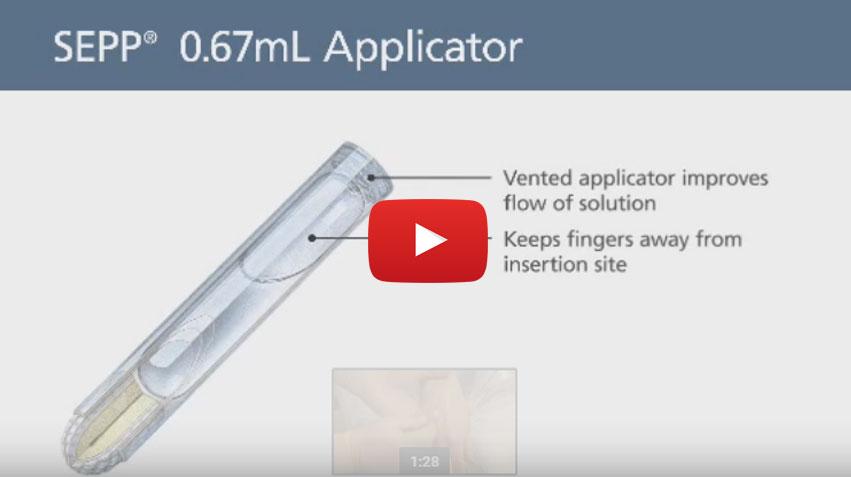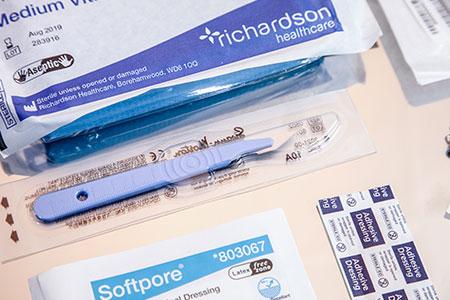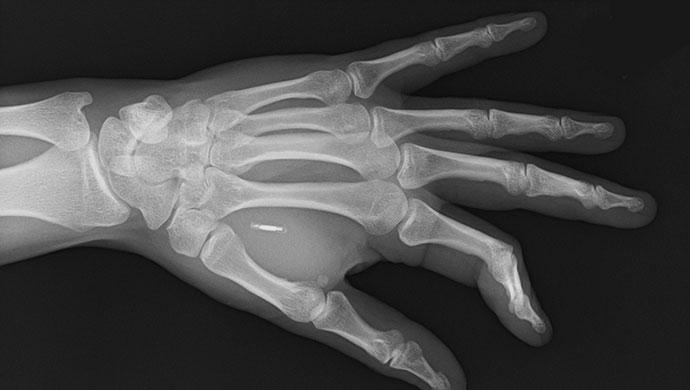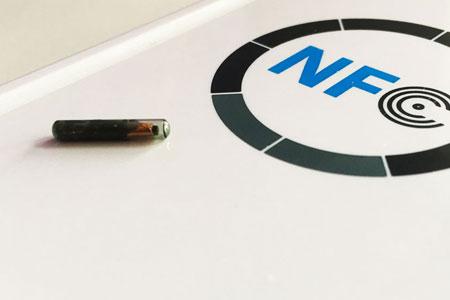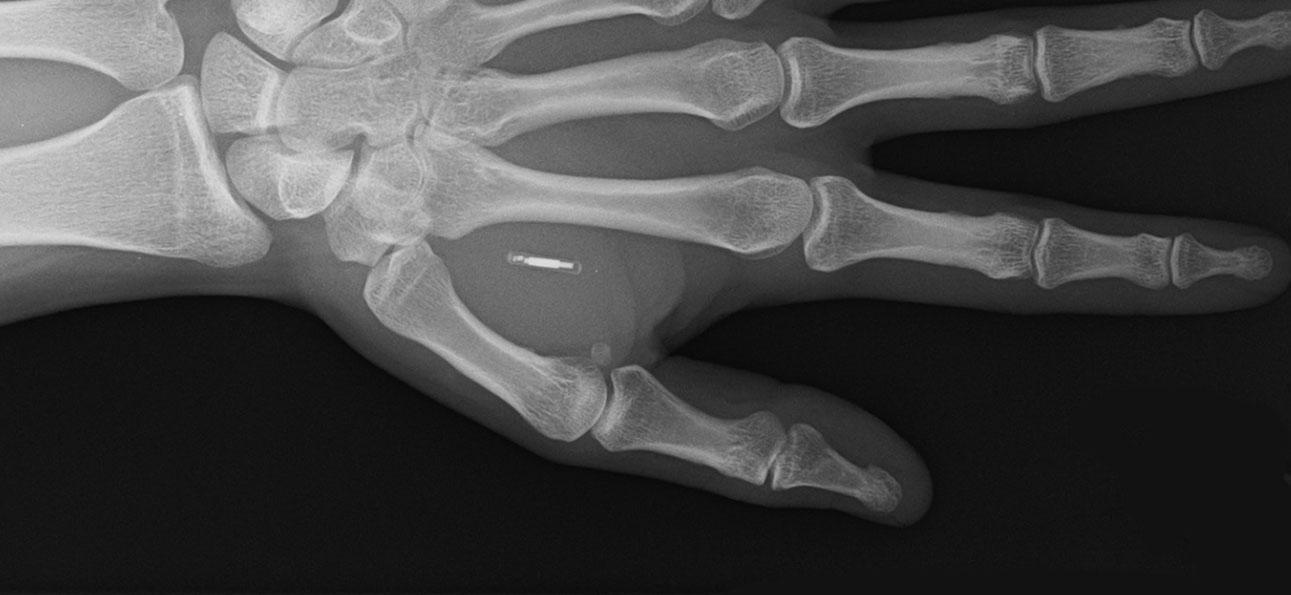
Bio-NFC

Bio-RFID

Implanting

Hardware
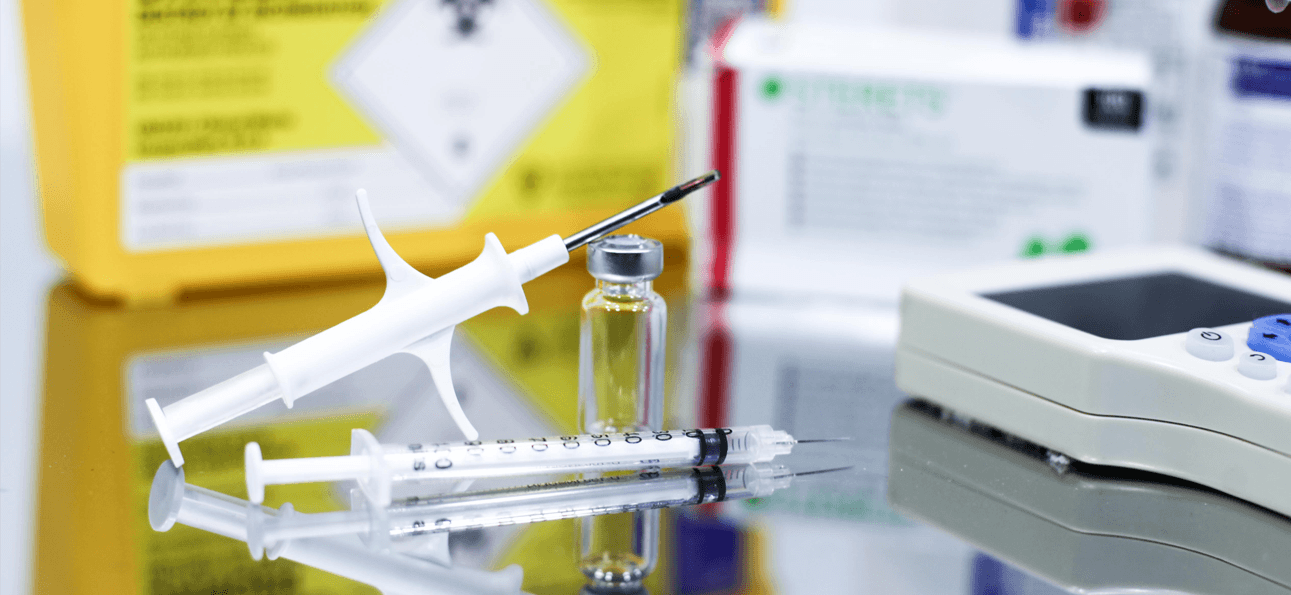
Information
Bio-NFC
Bio-RFID
Implanting
Hardware
Information
Information, Resources, Research & Design
The following is an ever-growing resource providing information and frequently asked questions in relation to human implantable technology alongside our products and services.
-
Are the implants safe for human use?The implants are chemically and biologically inert and have been tested in many millions of mammalian insertions plus an increasing number of human situations. We have worked with the Medicines and Healthcare products Regulatory Agency to confirm the legal status of our implants.
-
How are the implants installed?The implants are pre-loaded inside a sterile injection assembly, which is then used to inject the implant into the hand. It is recommended that it is injected between the thumb and index finger. This is the only place we will provide the implant when installing ourselves.
-
Can I have the implant placed somewhere other than my hand?We recommend that our implant is only installed between the thumb and index finger metacarpal bones. If it was to be installed on the palm side of your hand, for example, this would increase and add to the risk of breakage due to unnecessary stress or force. This is the only area of the body we recommend the implant to be installed.
-
Does the implant procedure hurt?The procedure itself is about as painful as most typical body piercings. You will feel a sharp pain when the needle pierces the skin but that’s it. If we install your implant for you we can numb your hand before the implant procedure to make it almost 100% painless before and after!
-
Can you see the implant under the skin?In the majority of cases the implant cannot be seen in the hand, it will be placed just under the skin without any visible bump. If you were to have very little fat, particularly in your hand, you may be able to see a slight bump where the implant sits.
-
Is it easy to remove the implant?Our implants are coated parylene anti-migration coating. We are happy to provide consultation on removal process which involves a minor procedure under local anaesthetic in sterile operating theatre conditions. If you are interested in implant remove please contact us for a quote.
-
What can I store on the implant data wise?If you have an NFC implant you can store a small amount of text based data, for example your name, address and contact information. Contact us if you have bespoke requirements for implant data storage.
-
Can I use my induction hob with the implant?Yes, there is zero interference with the implants we offer and the frequency at which induction hobs operate.
-
Will the implant set of security alarms?No, the implant chips have been tested on standard shop security systems, airport security scanners and general metal detectors. The component parts of the implants are too small to have any impact on security systems.
-
MRI Scanner Complications?The ability to read patient identification microchips relies on the use of radiofrequency pulses. Since radiofrequency pulses also form an integral part of the magnetic resonance imaging (MRI) process, the possibility of loss of microchip function during MRI scanning is of concern. Previous clinical trials have shown microchip function to be unaffected by MR imaging using a field strength of 1 Tesla and 1.5. As veterinary MRI scanners range widely in field strength, this study was devised to determine whether exposure to lower or higher field strengths than 1 Tesla would affect the function of different types of microchip. In a phantom study, a total of 300 International Standards Organisation (ISO)-approved microchips (100 each of three different types: ISO FDX-B 1.4 × 9 mm, ISO FDX-B 2.12 × 12 mm, ISO HDX 3.8 × 23 mm) were tested in a low field (0.5) and a high field scanner (3.0 Tesla). A total of 50 microchips of each type were tested in each scanner. The phantom was composed of a fluid-filled freezer pack onto which a plastic pillow and a cardboard strip with affixed microchips were positioned. Following an MRI scan protocol simulating a head study, all of the microchips were accurately readable. Neither 0.5 nor 3 Tesla imaging affected microchip function in this study.
-
Aftercare and Healing?After installing the tag into your hand, you can expect some bruising and slight swelling, both should go down after a few days. You can wash your hands and take showers as normal after the first day. It is important that for the first month not to perform and strenuous activity that may affect the tag, this includes, rock climbing, shooting fire arms or gripping anything with too much force. This may cause the tag to move during the healing process. If the tag moves too close to your bones, this could increase the risk of it breaking. To date we have had no report of an installed tag breaking and have undertaken numerous test on our tags to prevent breakage. If you experience pinching or tingling sensations for around 12-24 months after installation, this is normal and will just be any damaged nerves healing themselves around the install site.
-
Will the implant procedure leave a scar?Yes, however the scar will normally fade and be fairly unnoticeable after about 6 months.
-
Can I clone my work ID pass to my implant?Possibly is the only answer! it will depend on the system your work ID card is using. If this is something you are keen to do then we can investigate your work ID card and check the type of system used and check if it is compatible with our implant range.
-
Can I make contact less payments?Not currently, but the technology is compatible to make this work. The main issue currently is being allowed to integrate the system with credit providers such as Visa. This is something we are working on currently in the UK.
-
Can I install multiple implants in the same hand?Installing multiple implants into the same hand is not recommended due to the risk of interference and an increased risk of breakage. We are developing a dual NFC/RFID implant currently.
-
Where can I come to have my implant procedure?We are based in Hampshire, UK, near Southampton. However we run a range of implant surgeries around the UK on a regular basis. If you are a company having a number of people implanted we will come and setup at your location.
BioTeq Limited,
The IncuHive Space,
Mayflower Close,
Chandler's Ford Industrial Estate,
Eastleigh, Hampshire,
SO53 4AR
hello@bioteq.co.uk
*Please note we are not able to provide support unless we have carried out your implant procedure.
Company No. 10173300
© 2016 BioTeq Limited.
All rights reserved. Designed by InverseSquare Limited. Part of the SN Technologies Limited Group

Website Privacy, Cookies & Data Policy
All rights reserved. Designed by InverseSquare Limited. Part of the SN Technologies Limited Group
Website Privacy, Cookies & Data Policy

